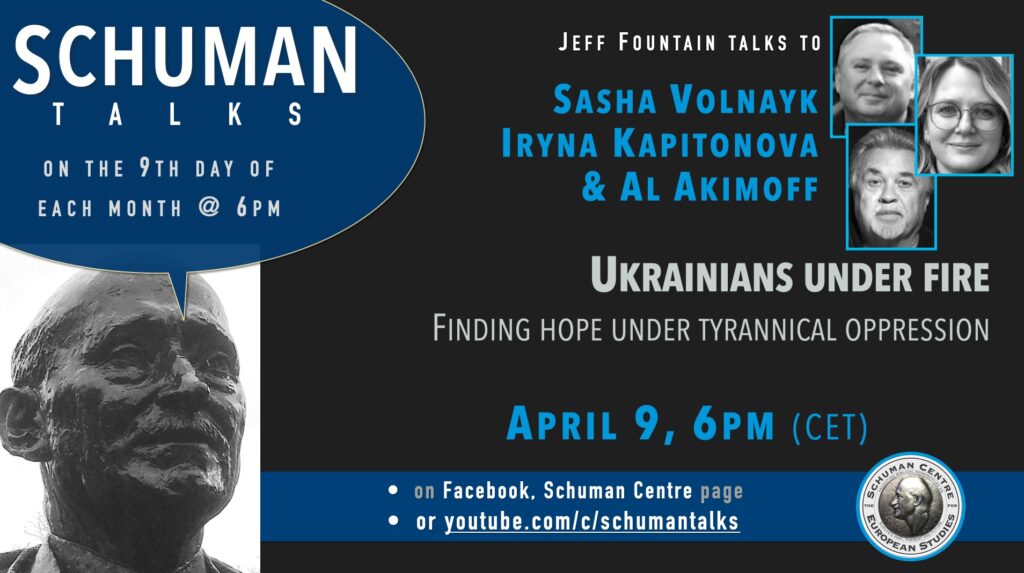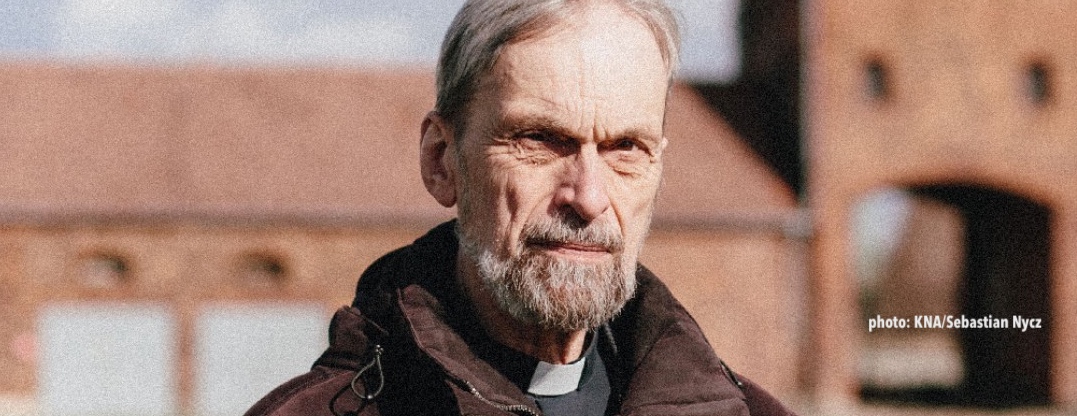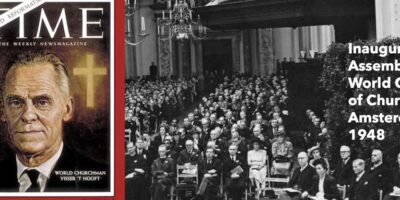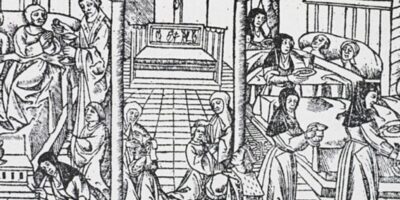Germans, Poles and Ukrainians have had to work hard on forgiveness and reconciliation since World War Two.
As a German now working in Poland, Fr. Manfred Deselaers has devoted much of his life to German-Polish reconciliation and Christian-Jewish dialogue at the Centre for Dialogue and Prayer in Auschwitz.
From this experience, and in an effort ‘to stop the hatred and destruction that is escalating in a terrible spiral’, he recently drafted a letter for Christian leaders from Germany, Poland and Ukraine addressed to the Christians of the Orthodox Church in Russia.
This letter is like a hand, they write, extended in the hope that someday it will be accepted:
Today Russia is waging a war against Ukraine, which is justified by Christian arguments and called sacred. This is creepy idolatry and a betrayal of Christ himself. Why doesn’t Russia build its culture on Christian witness of love and mercy, on unconditional respect for the dignity of every human being?
Fr. Manfred will contribute to the State of Europe Forum in Warsaw on May 9 & 10. This excerpt from lettertorussia.eu gives a glimpse of the issues we need to engage with next month at the forum:
The meaning of war is not about weapons, but about ideas, values, perceptions and identities. What is behind the pursuit of power? Why do the missiles fly? What is the goal? Ultimately, it is a spiritual problem. As Christians, we need a spiritual perspective of the confrontation and a spiritual approach to it. This means we need to think about how we can bring God’s love inside the confrontation. We Christians should always be looking for solutions beyond political and military considerations. That is what we are trying to accomplish with this letter. Our goal is peace, and that means healing maimed and broken relationships, the return of justice, forgiveness and reconciliation.
Some people think that it is too early to talk about it. But the reconciliation of Germans and Poles, which is often cited as a model, began even before the defeat of Germany, before some of those who bore the greatest responsibility were sentenced and punished, and before a long and painful process of acceptance of guilt and responsibility by the Protestant and Catholic Churches in Germany began.
The process of reconciliation in Germany began with those who had previously resisted National Socialism by defending basic human rights. Small groups of people played a major role after the war…
This gives us hope that such a process of reconciliation is possible now that the Russian Federation is waging war against Ukraine. We do not want to wait. We cannot just stand by and watch so many people die on both sides of the front. That is why we Christians from Germany, Poland and Ukraine are sending this letter to the believers of the Orthodox Church in Russia. It is born out of our heartache and is an invitation to seek God’s will together.
This year’s forum, commemorates the 75th anniversary of what I call ‘the defining moment’ of post-war Europe: the Schuman Declaration.
Defining? Yes, for in a three-minute speech delivered in Paris on the evening of May 9, 1950, the French Foreign Minister, Robert Schuman, triggered the process of integration resulting in the European Union and hastening the implosion of communism. Without the forgiveness and reconciliation embodied in this declaration that process would never have begun.
New foundations
Although the gunfire had stopped five years earlier, the world in 1950 was still far from peaceful. Families, cities, communities and nations had been torn apart and disrupted. Hurts, hatred and bitterness were still widespread. The threat of a Third World War hung heavy across Europe. The Kremlin was using various tactics to topple the fledgling democracies of France and Italy. (Sound familiar?) Stalin had tried to strangle western Berlin into submission. While Americans offered aid through the Marshall Plan and NATO, Europeans themselves needed to lay new foundations of forgiveness and reconciliation to rebuild their war-torn and broken continent.
Schuman’s speech was like a lighthouse in the storm, bringing ‘hope in turbulent times’. It called for a new framework of cooperation, interdependence, mutual accountability, respect for the dignity of all humans, the seeking of the common good and the welfare of neighbours.
Today’s turbulence caused by autocrats seeking greatness at the expense of others demands Schuman’s guiding values of equality, justice and freedom.
On Friday, May 9, exactly 75 years after Schuman’s declaration, we will hold a public commemoration in Holy Trinity Lutheran Church reflecting on the significance of the declaration then – and now.
The next day, we hold a full day forum in the Christian Theological Academy of Warsaw, addressed by Fr Manfred, among others.
Check out the website and join us at this timely event in Warsaw!

Till next week,




Thank you so much